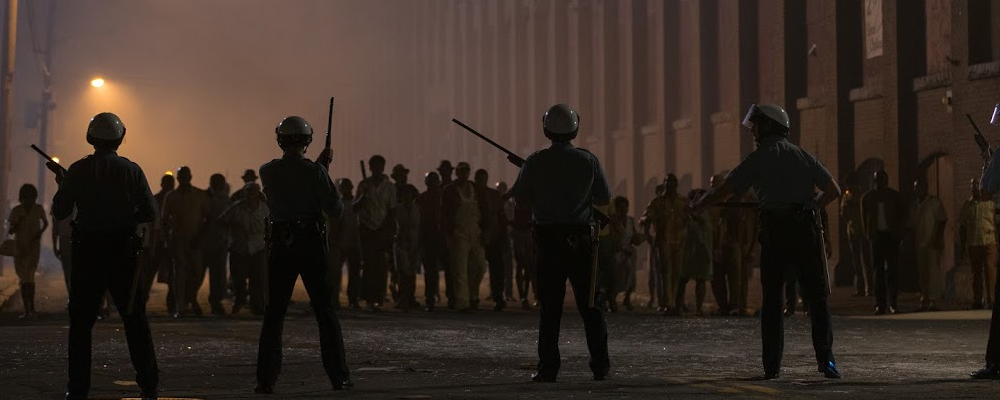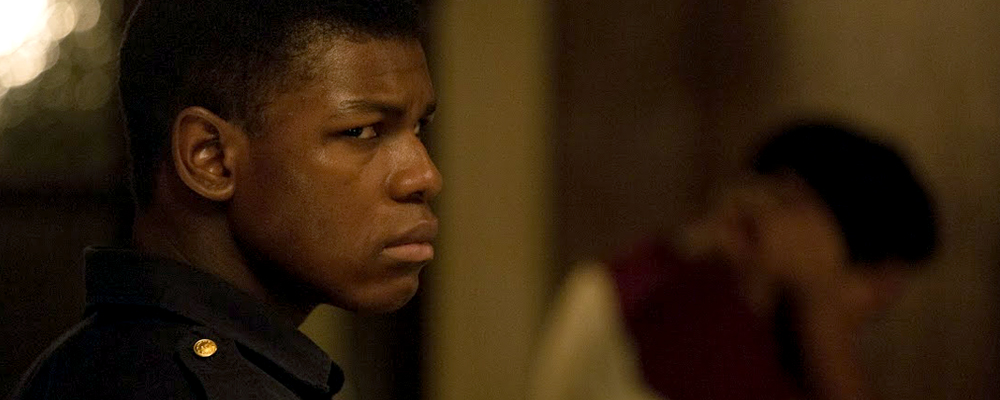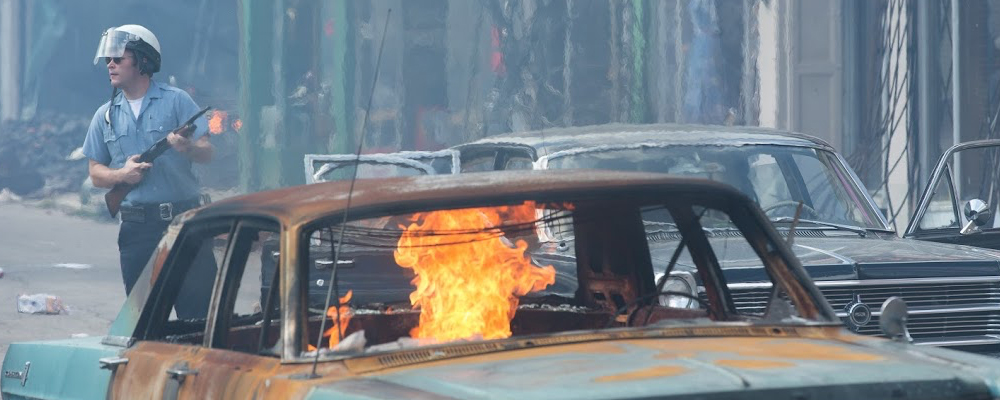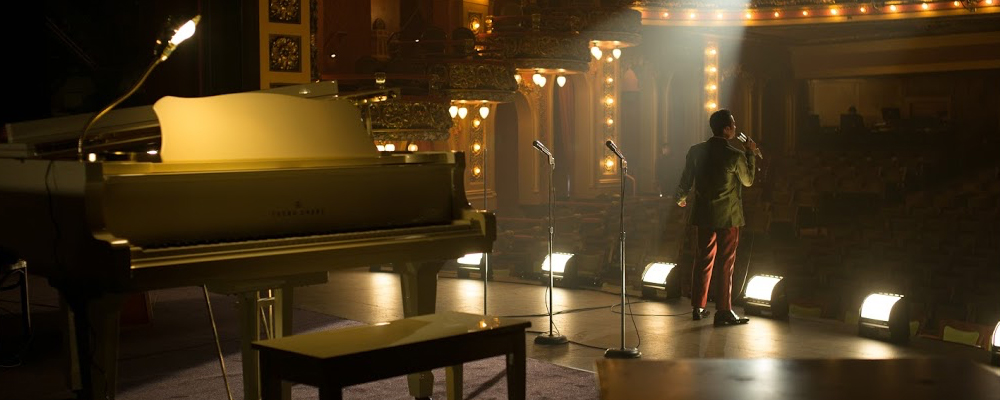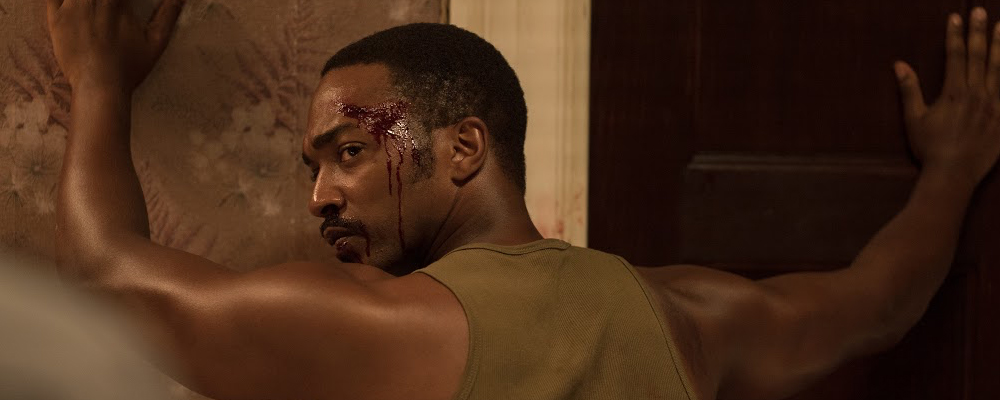Kathryn Bigelow’s ‘Detroit’ Is an Impactful Story of One Harrowing Incident in the Midst of Chaos
Sandra Miska
A dark chapter in American history that forever changed a major city and has repercussions to this day is depicted in “Detroit,” the latest from Oscar-winning director Kathryn Bigelow. This riveting film shows the riots of 1967 through the eyes of a group of young people who are brought together for one harrowing evening. This ensemble cast of mostly rising actors features “Star Wars” actor John Boyega as Melvin Dismukes, a security guard whose desire to keep his head down and do the right thing doesn’t stop him from becoming entangled in one of the most terrifying events during the four days of civil unrest, made even more harrowing by the fact it is based on a real-life incident.
“Detroit” begins with a brief intro explaining how African-Americans migrated from the South during the 1960s to find jobs in Detroit, looking for work in factories. During the same period, White Americans fled to the suburbs in large numbers, leaving African-Americans in segregated neighborhoods that were flanked by mostly Caucasian police officers. The story begins, and almost immediately there is an eruption of violence brought on by cops using excessive force while busting up an after-hours club filled with African-American patrons. Within a few days the violence has escalated to the point that the National Guard is called in. British actor Will Poulter plays the film’s chief villain, Krauss, a boyish officer who early on shoots and kills an African-American looter, playing it off to his superiors as an ignorant mistake. Bigelow does an excellent job of showing how quickly the city streets became a war zone. In one of the more disturbing scenes, a little girl peering out of her apartment window at the tanks on the streets below is mistaken for a sniper.
Despite these explosive early scenes, the majority of “Detroit” takes place indoors. Brilliant newcomer Algee Smith plays Larry Reed, a member of the rising R&B group The Dramatics. Not even the riots can put a damper on his enthusiasm for his art, and he practically has to be dragged away from the microphone after the riots shut down a show at the Fox Theatre seconds before he is to perform. It’s not long before he and his friend Freddie (Jacob Latimore) end up at the Algiers Hotel in the company of two young white women, Julie (Hannah Murray) and Karen (Kaitlyn Dever). They take the party inside, where they meet a group of other young African-American men, including Carl (Jason Mitchell), who shoots a toy gun out of a window, attracting Krauss and his fellow officers, Flynn (Ben O’Toole) and Demens (Jack Reynor). The most sadistic of the bunch, Krauss is the ring leader for what turns out to be an evening of horrors complete with extreme interrogation tactics and brutality. Even the two women aren’t safe from the aggression of the officers, who are especially triggered by the idea that they may or may not have had sexual relations with black men.
Throughout the whole Algiers episode, the centerpiece of the film, Bigelow doesn’t shy away from getting up close to show the unflinching reality of the horrible abuses this group of people went through. In the end, her decision to focus on this one incident makes the film more impactful than two hours of gunfire and breaking windows ever would have been. Even after the night ends, there’s a major trial, which for the survivors is like reliving the abuse all over again. However, there’s a strong message of resilience here. Even after the expected verdict, we see the heroes carrying on with their lives, paying their bills, honoring their friends and loving their families. Although we are 50 years out from the riots, one cannot help leaving the theater wondering if things have really changed that much.
“Detroit” opens in theaters Aug. 4.

